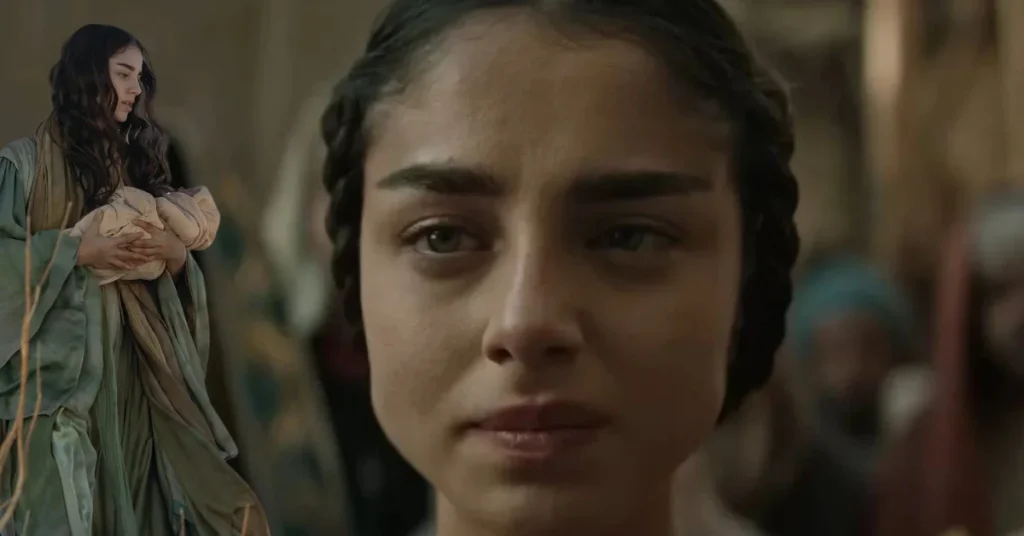To me, the ending of Netflix’s Mary is summed up within the final few minutes of the movie. Herod the Evil King has been abandoned and has fallen. After the killing of infants all over Bethlehem in the search for Jesus, his mission failed. He turns on his people, wielding and shaking a sword at them all – asking them where Jesus is.
But the people all walk off, free from injuries. This is a bit comical. He lets them all leave? He doesn’t stab a single person? Does he accept defeat? This doesn’t sound like Herod.
The movie then transitions back to Mary and Joseph, who take Jesus to be presented in the temple.
When the time came for the purification rites required by the Law of Moses, Joseph, and Mary took him to Jerusalem to present him to the Lord – Luke 2:22
And in the recreation of “Jesus Presented in The Temple,” we are met with the beautiful finishing line:
“And a sword may pierce your soul, Mary, so that the thoughts of many hearts may be revealed.”
The sacrifice and burden Mary has to bear as the Mother of Jesus.
God favored Mary as the Mother of Jesus, the highest honor a human could have imagined. For some, it could conjure up feelings of envy and sadness to not be the chosen mother of Jesus, but we do not dwell enough on the sacrifice Mary would have had as the mother of the Son of God:
- “And a sword may pierce your soul.” – Mary’s soul will suffer personal pain and sorrow due to her role in Jesus’ life.
- “So that the thoughts of many hearts may be revealed.” Luke 2:3-5 – Jesus will bring about Duality, Salvation, and Division.
I was delighted that Caruso concluded the movie with the message that love is what saves the world.
To ALL Christians, no matter the denomination, we know that Jesus is Love. This is heartwarming, hopeful, and holy. We are reminded that good will forever overcome evil.
How am I expected to explain Mary’s ending? I am a simple-minded, autistic Christian girl. I wish I could invite Jordan Peterson to help fully explain the depth and intellectually divine wisdom of the messages in the third act.
Love is sacrifice. Sacrifice to your emotions. Sacrifice to your thoughts. Sacrifice to your desires. Sacrifice to your needs. Sacrifice to your flesh. Sacrifice to you and your humanness. That’s the ending, and here is scripture to support that message:
1 Corinthians 13:4-84
(4) Love is patient, love is kind. It does not envy, it does not boast, it is not proud. (5) It does not dishonor others, it is not self-seeking, it is not easily angered, it keeps no record of wrongs. (6) Love does not delight in evil but rejoices with the truth. (7) It always protects, always trusts, always hopes, always perseveres. (
8) Love never fails.
I love the ending because I know it to be true. I have long longed to know what love is and feels like.
I searched and searched. And I did find Phila’s love and Eros’s love. The human experience and perception of love. God gives you Agape love. Deep, unconditional, fatherly love.
But that’s me putting it into human words. It is not something to be logically, intellectually understood, or found in the seen world—it is unseen but profoundly real. We could never put into perspective or words the love God has for us, but we can spiritually experience it if we open our hearts. And that’s how I know it to be true: the thoughts of my heart have been revealed.
Despite my reservations about Netflix’s Mary for many reasons, the movie did get this right: a beautiful message and a beautiful ending.




